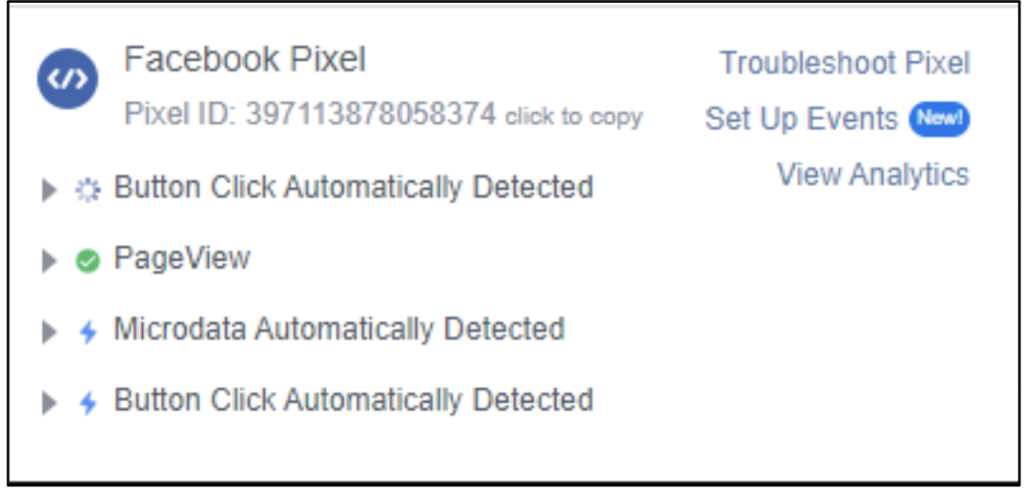
Class Actions claim video streaming websites are violating the Video Privacy Protection Act
Multiple VPPA class actions seek to recover $2,500 or more in damages, for violations of the Video Privacy Protection Act. Read more to find out if you can be eligible to recover money as well.
The Video Privacy Protection Act, or VPPA, prohibits “video tape service providers” from knowingly disclosing information that “identifies a person as having requested or obtained specific video materials or services.”
Read here: Section 18 U.S.C. § 2710 – Wrongful disclosure of video tape rental or sale records
Multiple VPPA class action claim video streaming websites shared visitors’ video-viewing history with Facebook without consent.
The lawsuits made similar allegations that websites collected and shared visitors’ personal information using the Facebook Pixel. That using Pixel, video streaming websites share personal data about people, including how they interact with their website. This data also includes the titles and description of each video a user watches on their website.
Facebook Pixel tracks user actions, and sends the data to Facebook. Facebook “processes, analyzes, and assimilates” the data to improve their targeted ad campaigns. Using this data, they’re able to profile each of their users better. Thus allowing their ads to be more specific and accurate in choosing in targeting us, the users.
What is the VPPA? How does it protect your online data privacy?
The Video Privacy Protection Act (VPPA) has been in effect in the United States since 1988. It restricts the video providers from revealing the titles of the videos, like a movie or TV show, that a specific individual has requested or obtained from the provider. VPPA makes is illegal for a video streaming website to disclose that you watched “The Dark Knight” or “The Office” on their platform, without your written consent.
VPPA allows affected users to recover punitive and actual damages liquidated to an amount not less than $2,500.
The VPPA was born with President Ronald Reagan’s nomination of Judge Robert Bork to the United States Supreme Court. During his confirmation process, a movie rental store revealed the nominee’s rental history to the Washington City Paper. As a result, Congress ultimately passed the VPPA with an eye toward the digital future. Senator Patrick Leahy, who introduced the law, could perceive the threats of modern technology well in advance. He explained:
“It is nobody’s business what Oliver North or Robert Bork or Griffin Bell or Pat Leahy watch on television or read or think about when they are home. In an area of interactive television cables, the growth of computer checking and check-out counters, of security systems and telephones, all lodged together in computers, it would be relatively easy at some point to give a profile of a person and tell what they buy in a store, what kind of food they like, what sort of television programs they watch, who are some of the people they telephone. I think that is wrong.”
S. Rep. 100-599, at 5-6.
The VPPA prohibits “[a] video tape service provider who knowingly discloses, to any person, personally identifiable information concerning any consumer of such provider.” 18 U.S.C. § 2710(b)(1).
The VPPA defines personally identifiable information as “information which identifies a person as having requested or obtained specific video materials or services from a video service
provider.” 18 U.S.C. § 2710(a)(3).
A video tape service provider is “any person, engaged in the business, in or affecting interstate or foreign commerce, of rental, sale, or delivery of prerecorded video cassette tapes or similar audio-visual materials.” 18 U.S.C. § 2710(a)(4).
Does the Video Privacy Protection Act apply to online streaming services too?
The VPPA applies to all “video tape service providers”. This definition covers any commercial activities including “rental, sale, or delivery of prerecorded video cassette tapes or similar audio-visual materials.” 18 U.S.C. § 2710(a)(4).
The use of words, “similar audio-visual materials” includes all online streaming services within the VPPA. An online streaming service essentially allows visitors to download or watch pre-recorded videos, or audio-visual materials online. Or in other words, they are engaged in the business of delivery of audio-visual materials to consumers via internet.
Digital Marketing Businesses want to know EVERYTHING about us.
Including what we search for, what we read, what we say, and what videos we watch.
That’s where the Facebook Tracking Pixel comes in. It is a tool by Facebook which can be easily integrated with any video streaming website. Pixel “tracks people and type of actions” they take on the website, including the details of videos they watch.
The VPPA class actions accused several video streaming websites of using the Facebook Pixel which allows Facebook to capture users’ data from these websites. The data Facebook gathers from consumers includes the description of the video they watched. Along with information which can identify users (who have Facebook accounts). Furthermore, the complaints alleged that this was done without the users’ consent or knowledge, which violates the VPPA.
What all user information does the Facebook Pixel collect from video streaming websites?

The aggregate pixel events (Page View, Microdata Automatically Detected, and Button Click Automatically Detected) permit an ordinary person to identify a video’s content, title, and location.
The lawsuits alleged Facebook tracking pixel sends cookies to Facebook that can be used by anyone to identify specific videos a user viewed on that website. It explains, Facebook Pixel uses an event called “PageView”, which shares the URL of the page being viewed and whether or not the viewer has an account with CBS. That Pixel uses an event called “Button Click”, to capture the title of the video being played and whether or not the user has paused or played it. And an event called “Microdata” shares each video’s title with Facebook.
All this user data allows these websites to use Facebook to improve their own targeted ad campaigns via Facebook. Facebook uses this user data to better profile the consumers, and allows for more specific targeting of advertisements to these users.
A wave of VPPA Class Actions seeking to recover damages from video streaming websites.
As consumers find out about the possible privacy violations on these video streaming websites using Facebook Pixel, they started seeking remedies. Fortunately, the VPPA provides strict guidelines for these video service providers, violating which, could result in a hefty penalty for these businesses. At the same time, affected consumers could recover punitive and actual damages for the losses they suffered. The actual damages suffered due to data privacy breach can be difficult to ascertain. Hence the VPPA allows consumers to recover liquidated damages not less than $2,500 for VPPA violations.
You can read more about interesting class actions, including other cases under the Video Privacy Protection Act in our News section on ClassActionNews.
Among the recent VPPA class actions, some popular websites which have been sued for using Facebook Pixel to capture user information without consent include a case against Paramount Global for sharing viewers data from CBS.com, case against WW.com for VPPA violations on weightwatchers.com, and a similar VPPA complaint against Perez Hilton.
However, there are some open questions about the fate of these cases, and about the application of the VPPA. Like whether VPPA would also apply to free video streaming websites, like Youtube for instance. Or the extent of definition of personal information covered under the VPPA. We’re hopeful that we’ll learn the answers as Courts decide upon these cases. We are closely monitoring the progress of these cases.
Sign up for our weekly newsletters to stay up to date and not miss out on any possible settlements that you can be a part of too.
If you watch videos online, then your privacy could be at risk too.
The fact is, not all websites inform us about the information they are collecting from us. As a result, we need to take precautions to safeguard our privacy while using the internet. VPNs, secure browsers, and third-party apps with security features can help us be more careful.
If you suspect that any websites could have exposed your personal information without your consent, please contact us to get in touch with a class action lawyer at ClassActionNews today.
Join our weekly Newsletter to stay informed about more such class actions which might be affecting you too.
